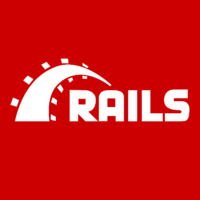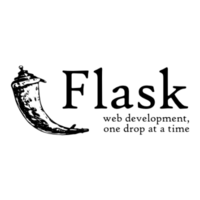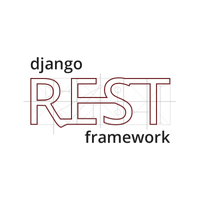Need advice about which tool to choose?Ask the StackShare community!
Django vs Node.js: What are the differences?
Introduction
Node.js and Django are popular frameworks used for building web applications. While Node.js is a JavaScript runtime that allows running JavaScript code on the server side, Django is a high-level Python web framework for rapid development and clean design. Although both frameworks are used to create web applications, there are several key differences between them.
Language: The primary difference between Node.js and Django is the programming language they are built on. Node.js uses JavaScript, which is often the language of choice for full-stack developers. On the other hand, Django uses Python, a general-purpose language known for its simplicity and readability.
Architecture: Node.js follows a non-blocking, event-driven architecture, allowing for concurrent execution of multiple requests. This makes Node.js highly scalable and suitable for I/O-intensive applications. In contrast, Django follows a more traditional synchronous architecture, making it a better choice for CPU-intensive applications.
Community and Ecosystem: Node.js has a large and active community, with a vast ecosystem of libraries and modules available through the Node Package Manager (NPM). This makes it easy to find and integrate third-party solutions into Node.js applications. Django also has a thriving community but the ecosystem is more focused on Django-specific packages, which may be limiting when compared to the broader JavaScript ecosystem of Node.js.
Flexibility: Node.js provides more flexibility compared to Django in terms of application architecture and database choice. With Node.js, developers have the freedom to choose the architecture and design patterns that best fit their application requirements. Django, on the other hand, follows the MTV (Model-Template-View) architecture and uses Object-Relational Mapping (ORM), which provides a strict structure and predefined conventions.
Learning Curve: Node.js is relatively easier to learn for developers familiar with JavaScript, as they can leverage their existing knowledge of the language. Django, being built on Python, may require developers to have a solid understanding of Python syntax and libraries. However, Django's extensive documentation and straightforward design make it beginner-friendly.
Speed of Development: Django is known for its "batteries included" philosophy, providing a comprehensive set of tools and features out of the box. This allows developers to quickly build and launch a fully-functional application with minimal effort. In comparison, Node.js provides more flexibility but may require additional time and effort to set up the required libraries and modules for a specific application.
In Summary, Node.js and Django differ in terms of programming language, architecture, community support, flexibility, learning curve, and speed of development.
So currently I have experience in Node.js, but just to expand my stack knowledge and for getting backend developer roles, I thought of learning another backend-related language/framework. I have heard about Django, Golang, and Spring. I am mostly trying for backend API roles, and far as I've heard, Django REST framework can be a pain to work with. I've heard there are issues with Golang for package management (like how recently the Gorilla web toolkit is archived) and as for Spring, it's a vast ecosystem to learn so not sure if it's worth investing in. I would like to know which tool/framework to learn, which can help me get high-paying jobs and has a lot of scopes, and also which is great for making REST APIs. Any other tool that can do the job better than these three is also welcome!
Try thats, is really lightweight and little bit similar like node, before you jump on djanggo stuff, hopefully it's helpful https://fastapi.tiangolo.com/
As a newbie, trying to code an Avatar AI app from scratch - (I'm familiar with setting up the backend APIs on Flask), but blocked on choosing the frontend. Which of these JavaScript frameworks are preferred for development with Flask. Also, are there any UI tools / low-code tools which make development easy?
I don't say that is preferred, but I think Vue.js is friendly for those having first contact with this kind of technology, also I would recommend checking Quasar framework (vue.js based).
Quasar introduction: https://quasar.dev/introduction-to-quasar
Pure Vuejs (Free) 27min: https://vueschool.io/courses/vuejs-fundamentals
Hello, I'm trying to build an auction app with solidity and React but I need some server to handle data and internal logic and I don't know what tool to use for the backend for these reasons:
- when just using react and solidity it's not fast.
- when using Django and web3py, I can't transfer money with Metamask.
I've heard about Next.js and Node.js as the backend but I cant decide. I would appreciate any help.
The real question here is: "What is the best way to deploy a decentralized application with a React front-end."
Building a decentralized application and integrating things such as Metamask require you to write smart contracts. This process is language agnostic as long as the smart contract is written and deployed to the chosen blockchain correctly.
Using classic Full-Stack HTTP Application frameworks like Django will no longer work because when we create something with Django, the server is centralized, defeating the purpose of the Blockchain architecture.
That being said, now the question is, what programming language do you want to use to deploy this decentralized application? - https://eth-brownie.readthedocs.io/en/stable/ - is a Python framework for writing smart contracts.
As you have already learned and built with React, you might be better off sticking with the same runtime. NodeJS does have frameworks for deploying decentralized applications called the truffle suite: https://trufflesuite.com/.
This is a whole set of tools for writing decentralized applications using JavaScript and TypeScript.
Hope this helps.
Hello, I am trying to learn a backend framework besides Node.js. I am not sure what to pick between ASP.NET Core (C#) and Spring Boot (Java). Any advice, any suggestion is highly appreciated. I am planning to build only Web APIs (no desktop applications or something like that). One thing to mention is that I have no experience in Java or C#. I am trying to learn one of those 2 and stick to it.
UPDATE: The project I am trying to build is a SaaS using microservices that supports multi tenancy.
I'd recommend to learn Spring as it is very widespread in the industry and provides a lot of easy integration into most of the common backend tech stacks. Rather than learning Java you could look into Kotlin. It's a very consistent, stable and well-thought language in my opinion and not as verbose as Java. Many problems can be solved with Kotlin in a clear and elegant way while also always having the option to use data structures and libs in JVM. It is also has a very good support in Spring.
I have worked in a Spring environment for many years and I still love working with it. Super quick to get a base application running and get coding, thanks to Spring Boot's easy and straight forward integration with Tomcat. However, I will try and answer this question from another perspective: look at topics such as popularity of the language, average statistics on community contribution to their repositories and hiring availability from companies. If you are going down the API route for backend, leverege on your experience in the Node world by looking into ExpressJS (or even NestJS). The JavaScript world is really excellerating at a lightning speed, and I could recommend exploring those worlds a bit more, should it be a comfort level for you. However, my biased answer is tryout Java, followed by Spring afterwards. No disrespect to any .NET developers out there, as there are a few topics in there which are fantastically implemented.
I'm really interested in building minimalistic web products with extra stuff like Stripe, MongoDB, solidity, WebAssembly and three.js.
Want to choose my backend lang but am unable to choose, my requirement is:
- fast dev
- minimal
- easy to learn
- good for saas
- huge community
- scalable
- fast and interactive
- good job market (not important)
If you want an ’easy-to-learn’ and ‘fast dev’ environment I would go with React.js, Node.js, and Firebase. This is probably one of the easiest tech stacks to develop and offers great scalability without creating a complicated database structure. Furthermore, it’s almost hard to develop a react application that isn’t lightning fast.
Should I continue learning Django or take this Spring opportunity? I have been coding in python for about 2 years. I am currently learning Django and I am enjoying it. I also have some knowledge of data science libraries (Pandas, NumPy, scikit-learn, PyTorch). I am currently enhancing my web development and software engineering skills and may shift later into data science since I came from a medical background. The issue is that I am offered now a very trustworthy 9 months program teaching Java/Spring. The graduates of this program work directly in well know tech companies. Although I have been planning to continue with my Python, the other opportunity makes me hesitant since it will put me to work in a specific roadmap with deadlines and mentors. I also found on glassdoor that Spring jobs are way more than Django. Should I apply for this program or continue my journey?
I would recommend you change and get the easy path, but there's no easy path. When you are working in something like development you have to learn every day, stick with a specific niche, learn from others to apply to yours, and improve to be a specialist. If Spring and Java are technologies you're not enjoying, why are you going to waste your time with them? If you check the market, the higher salaries are in the specialization. For example, I was sticking with Erlang and Elixir in high volume, high availability, and concurrent systems. Don't check the number of works about Python, Java, or whatever else, you only need one job, and you have no idea about the quality of these. Most of the demanding jobs for Java, Python, and PHP are usually not covered because they request a lot and pay too less. Believe me, there are not a lot of Erlang and Elixir jobs and I always found one. And finally, don't expect too much from big companies, they are all glamorous from the outside, but they are usually a deception when you start working for them.
Hi Mohamed, I love Django for its "batteries included" philosophy, meaning that you get the backend for free and a lot of stuff for database abstraction. But often you just need some kind of webserver backend logic and Django is oversized for that purpose. In that case I go with Flask which has a modular approach so that you need to gather the parts yourself that you need. If you come from a Python background I think there is a lot to explore with Python for the web and it very well into the data science landscape.
Hi everyone! I'm starting a personal project that I've been postponing for a little while and I need a bit of advice. I thought that it will be a bit of a challenge but I figure the best way to learn is by doing!
The plan is to build an app with loads of automation build in for reporting which would make it very easy to perform tasks, The plan is to build something similar to an HR app using microservice architecture, separating services e.g. employee data, payroll (including calculations based on easily entered info like tax %), employee services (vacation, sick day allowance booking and tabulation) and automated reporting on a pre-defined schedule (bi-weekly, monthly).
I am considering Django (as I currently know a bit of Python) and Symfony (as a friend who is a developer recommended it) but I am well aware there are other (and probably better) tools out there for the job (like maybe ExpressJS/Node.js for the backend and React/Vue.js for the front).
Background:
I have got knowledge as a DevOps, Site Reliability and Cloud engineer so once the app is built I'm very comfortable taking it to deployment.
Thank you all for your help and responses.
Hi. I guess it all depends on what your goal is. If you wanna make fast prototyping Django or ExpressJNodeJS might be really good candidates. You can write your services quickly and easily by using anyone of them. Maybe we can also put Laravel in the same category.
Symfony is also another application framework that comes with many reusable components. It provides great flexibility with the configuration and dependency management solutions. So that you can inject or override anything, anytime without doing something hack-ish. You don't have to depend on any components that come with the framework and, replace them with whatever you prefer unless encounter any integration issues. I can say that Laravel also provides most of the Symfony futures as it uses its components under the hood. However, my personal experience with Laravel was not so good because it made me feel like I use a modernized version of Codeigniter. But anyway. :) So if I have to choose one of them, I would choose Symfony.
From the backend perspective, all of those have some pros and cons. For example, If strict type declaration is important for you and you don't like code magics like monkey patching etc., maybe Python and NodeJS might not be good candidates and maybe you could choose Symfony/php. However, in this case, you'll be missed out on the most powerful future of NodeJS which is non-blocking io. if you plan to do IO-intensive works, I think it would be a big loss.
So, maybe I can recommend you to have a look at typescript + NestJS also. https://nestjs.com/ The futures that NestJS provides might be a good balance between the strengths of Symfony and NodeJS.
As I'm backend dev., I haven't work too many frontend projects but from my personal experience, I loved ReactJS more than Vue although Vue was simpler. Maybe a front-end developer can give us more helpful details about those.
Hope it helps.
I am wondering which language would you guys suggest learning if productivity & "future-proofing" is the focus?
I have now 2 years of experience with React Native & Firebase and 3 years of experience with Next.js and ExpressJS. As I like the idea of separating backend & frontend I think as a solo developer the MVC approach will get you way further and overall I started second guessing the whole js ecosystem and its quality.
What I am currently considering the most is Django, even if I am giving up major productivity I think the opportunities Python offers with AI/ML & scrapping are way superior then Rails. I would like to know how much productivity would get lost by deciding on Django.
Python is simple to read. Easy to use and import libraries. It is widely used in many different application domains. It is very easy to learn compared to other languages.
Considering your background is in front end technology; why not try some other language that can help you become more well rounded? Besides, there are always more and more python jobs.
Django is very easy to learn. If you use Django, I recommend the Django-Rest-Framework. This will save you a lot of time. But you need to understand some Python first. I think Python is as simple as: interpreted, dynamically typed language where you use lists and dictionaries a lot.
I've been approached by a business consultant for programming a website + web application for his client, which is a logistics company. The web application will have a tracking system for tracking their GPS enabled fleet (400 tricks).
Kindly advise me which scaleable stack can I use for the back-end. I'm planning to use React for the front-end.
And by back-end, I also include the database. I'm considering PostgreSQL as the database system.
Spring is a good decision for your needs, but you should build correct microservice architecture for good scaling. Work with database can be easy with ORM (e.g. Hibernate) and migrations (e.g. Liquibase) If you need the best performance and scaling on frontend, you can use Angular or React.
Spring documentation is great. It makes it easy to learn and teach others when your application continues to grow.
What should be used Node.js or Laravel to create a course search portal having about 50K courses, where users will create a profile and enter their academic credentials, scores, language tests, fee range, subject area, etc, and the system will filter and suggest courses meeting the entry requirements and other criteria. The applicant will then shortlist courses, he should be able to compare courses, apply for courses, upload documents and fill in application details, etc.
It's not a fair comparison. Laravel is a PHP web framework, Node is a web server runtime around JS. The question should be either:
- PHP or Node? => take what you know/can work fast in
- Laravel or ExpressJS/MeteorJS => take what you know/can work fast in
If it were up to me, I'd choose Laravel because I know it and can work fast in it :-)
Graphul is an Express inspired web framework using a powerful extractor system. Designed to improve, speed, and scale your microservices with a friendly syntax, Graphul is built with Rust. that means Graphul gets memory safety, reliability, concurrency, and performance for free. helping to save money on infrastructure.
A developer and project manager from our team X says the following about our use of Rails at i22:
"We use Rails to build stable and flexible backend systems. Rails is extremely good for managing data structures and quickly setting up new systems. It is the perfect base for most use cases."
I asked the same Team X member why the team prefers to work with Ruby on Rails, rather than Python and Django:
"Because Python is a scripting language and from my point of view not suitable for building stable web services. Python is for me rather good for scripts and fast small tools. Not for stable business applications. And if I want it fast I prefer Go."
NestJS has a very good documention. Furthermore, as a former django-user myself, I believe it is nice to finally get a backend node.js framework very much opiniated like Django. It may be related to what I previously said, but in terms of enterprise-used framework, it seems that Nest.js is the most popular.
Node Js have worked incredible great for me on every project I had. It is fast enough to support big and small apps, you do not have to worry about performance, because it is very capable of building a big REST API.
One advantage is that the learning curve is lower when you have used javascript on web browser as frontend, so, it is easy to migrate from Frontend to Backend with node.
Node Package Manager (NPM) has an incredible amount of packages from many developers, so you can use them on your project as you need them.
Code is easy to support, way different than Java Legacy code.
I inherited a large Python Django application as part of a corporate re-structure. After careful analysis, working with the new team, we decided to break the monolith into a microservices architecture. While doing so, we managed to port some of those microservices into Spring boot. Better performance and widely available expertise within my current team made me make this decision.
We choose Next.js for our React framework because it's very minimal and has a very organized file structure. Also, it offers key features like zero setups, automatic server rendering and code splitting, typescript support. Our app requires some loading time to process the video, server-side rendering will allow our website to display faster than client-side rending.
We’re a new startup so we need to be able to deliver quick changes as we find our product market fit. We’ve also got to ensure that we’re moving money safely, and keeping perfect records. The technologies we’ve chosen mix mature but well maintained frameworks like Django, with modern web-first and api-first front ends like GraphQL, NextJS, and Chakra. We use a little Golang sparingly in our backend to ensure that when we interact with financial services, we do so with statically compiled, strongly typed, and strictly limited and reviewed code.
You can read all about it in our linked blog post.
This website was originally written in Yii as PHP was my main language back then. After learning Django, I realized just how quickly you could build a web app with less lines. So I migrated my website to Django in a week or two and managed to cut down the lines of code by half. Some of the lines saving came from the models, the views, and the expressiveness of Python. Django requires like config for the models and they provide many generic views that abstracts away common patterns.
I am planning to develop project management system SAAS based. Can any one help me with selection of platforms from Django or Laravel and for database MongoDB or Firebase/Firestore or MySql? On front end I am going to use Quasar Framework (VueJS). Note : project will be Webapp, Mobile app and desktop app.
We will use Django to set up our backend and Django REST Framework (DRF) for our API creation. The easiness of performing development tasks (eg. user authentication, URL routing, and schema migration) attracts our attention. Also, Django with PostgreSQL provides many benefits:
1. Some data types in Django will only work with PostgreSQL;
2. Django offers django.contrib.postgres to operate on PostgreSQL;
3. Django supports many features of PostgreSQL.
Moreover, Django is compatible with Redis.
Pros of Django
- Rapid development670
- Open source487
- Great community424
- Easy to learn379
- Mvc276
- Beautiful code232
- Elegant223
- Free206
- Great packages203
- Great libraries194
- Comes with auth and crud admin panel79
- Restful79
- Powerful78
- Great documentation75
- Great for web71
- Python57
- Great orm43
- Great for api41
- All included32
- Fast29
- Web Apps25
- Easy setup23
- Clean23
- Used by top startups21
- Sexy19
- ORM19
- The Django community15
- Allows for very rapid development with great libraries14
- Convention over configuration14
- King of backend world11
- Full stack10
- Great MVC and templating engine10
- Fast prototyping8
- Mvt8
- Easy to develop end to end AI Models7
- Batteries included7
- Its elegant and practical7
- Have not found anything that it can't do6
- Very quick to get something up and running6
- Cross-Platform6
- Easy Structure , useful inbuilt library5
- Great peformance5
- Zero code burden to change databases5
- Python community5
- Map4
- Just the right level of abstraction4
- Easy to change database manager4
- Modular4
- Many libraries4
- Easy to use4
- Easy4
- Full-Text Search4
- Scaffold3
- Fastapi1
- Built in common security1
- Scalable1
- Great default admin panel1
- Node js1
- Gigante ta1
- Rails0
Pros of Node.js
- Npm1.4K
- Javascript1.3K
- Great libraries1.1K
- High-performance1K
- Open source805
- Great for apis486
- Asynchronous477
- Great community423
- Great for realtime apps390
- Great for command line utilities296
- Websockets84
- Node Modules83
- Uber Simple69
- Great modularity59
- Allows us to reuse code in the frontend58
- Easy to start42
- Great for Data Streaming35
- Realtime32
- Awesome28
- Non blocking IO25
- Can be used as a proxy18
- High performance, open source, scalable17
- Non-blocking and modular16
- Easy and Fun15
- Easy and powerful14
- Future of BackEnd13
- Same lang as AngularJS13
- Fullstack12
- Fast11
- Scalability10
- Cross platform10
- Simple9
- Mean Stack8
- Great for webapps7
- Easy concurrency7
- Typescript6
- Fast, simple code and async6
- React6
- Friendly6
- Control everything5
- Its amazingly fast and scalable5
- Easy to use and fast and goes well with JSONdb's5
- Scalable5
- Great speed5
- Fast development5
- It's fast4
- Easy to use4
- Isomorphic coolness4
- Great community3
- Not Python3
- Sooper easy for the Backend connectivity3
- TypeScript Support3
- Blazing fast3
- Performant and fast prototyping3
- Easy to learn3
- Easy3
- Scales, fast, simple, great community, npm, express3
- One language, end-to-end3
- Less boilerplate code3
- Npm i ape-updating2
- Event Driven2
- Lovely2
- Creat for apis1
- Node0
Sign up to add or upvote prosMake informed product decisions
Cons of Django
- Underpowered templating26
- Autoreload restarts whole server22
- Underpowered ORM22
- URL dispatcher ignores HTTP method15
- Internal subcomponents coupling10
- Not nodejs8
- Configuration hell8
- Admin7
- Not as clean and nice documentation like Laravel5
- Python4
- Not typed3
- Bloated admin panel included3
- Overwhelming folder structure2
- InEffective Multithreading2
- Not type safe1
Cons of Node.js
- Bound to a single CPU46
- New framework every day45
- Lots of terrible examples on the internet40
- Asynchronous programming is the worst33
- Callback24
- Javascript19
- Dependency based on GitHub11
- Dependency hell11
- Low computational power10
- Can block whole server easily7
- Callback functions may not fire on expected sequence7
- Very very Slow7
- Breaking updates4
- Unstable4
- No standard approach3
- Unneeded over complication3
- Can't read server session1
- Bad transitive dependency management1














































































